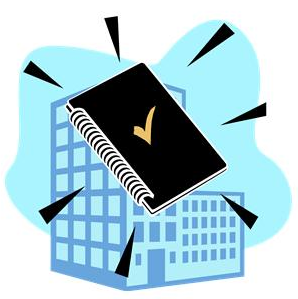eDiscovery Daily Blog
eDiscovery Standards: How Does an Industry Get Them?

As discussed yesterday, there is a nascent, but growing, movement pushing for industry standards in eDiscovery. That’s something many litigators may chafe at, thinking that standards and industry benchmarks impose checklists or management processes that tell them how to do their job. But industry standards, when implemented well, provide not only a common standard of care, but can help provide a point of comparison to help drive buying decisions.
It’s probably understandable that many of the calls for standards today focus on the search process. Judge Shira Scheindlin wrote in Pension Committee of the University of Montreal Pension Plan v. Banc of America Securities, LLC that a party’s “failure to assess the accuracy and validity of selected search terms” was tantamount to negligence. As mentioned yesterday, the Text Retrieval Conference TREC Legal Track has been benchmarking different search strategies, even finding ways to optimize the search process. The ultimate goal is to provide baseline standards and guidelines to allow parties to determine if they are being successful in searching electronically stored information in litigation.
Within these technical discussions a new emerging thread is a call for ethical standards and codes of conduct. Jason Baron, National Archives' Director of Litigation and one of the coordinators of the TREC Legal Track, organized the SIRE workshop that concluded last week, focused on information retrieval issues in large data sets. However, even he, who has been working on optimizing search technology, recognizes the need for standards of care and ethics in eDiscovery to manage the human element. In a paper released earlier this year, he noted, “While there are no reported cases discussing the matter of ‘keyword search ethics,’ it is only a matter of time before courts are faced with deciding difficult issues regarding the duty of responding parties and their counsel to make adequate disclosures.”
The leading provider of industry standards is the Electronic Discovery Resource Model (EDRM), which has a number of projects and efforts underway to create common frameworks and standards for managing eDiscovery. Many of the EDRM’s ongoing projects are aimed at creating a framework, and not standards. In addition to the EDRM Framework familiar to many eDiscovery professionals, the group has produced an EDRM Model Code of Conduct Project to issue aspiring eDiscovery ethics guidelines and is working on a model Search Project.
But biggest piece of the discussion is how to create benchmarks and standards for repeatable, defensible, and consistent business processes through the entire eDiscovery process. There are no current quality standards for eDiscovery, but there are several models that could be adopted. For example, the ISO 9000 quality management system defines industry-specific quality standards and could be tailored to eDiscovery. The Capability Maturity Model Integration (CMMI) in software engineering follows a similar model, but unlike ISO, does not require annual updates for certification.
This is still a nascent movement, characterized more by workshops and panel discussions than by actual standards efforts. Recent events include EDRM 2011-2012 Kickoff Meeting, St Paul, MN, May 11-12, ICAIL 2011 DESI IV Workshop, Pittsburgh, PA, June 6, TREC Legal Track, Gaithersburg, MD, November, and the SIRE workshop at the Special Interest Group on Information Retrieval (SIGIR) SIGIR 2011 on July 28.
There seems to be a growing consensus that industry standards are not just useful, but likely necessary in eDiscovery. The Sedona Commentary on Achieving Quality in eDiscovery Principle 3 says, “Implementing a well thought out e-discovery process should seek to enhance the overall quality of the production in the form of: (a) reducing the time from request to response; (b) reducing cost; and (c) improving the accuracy and completeness of responses to requests.”
The question now seems to be, what type of standards need to be in place and who is going to craft them. So, what do you think? Please share any comments you might have or if you'd like to know more about a particular topic.
Editor's Note: Welcome Jason Krause as a guest author to eDiscovery Daily blog! Jason is a freelance writer in Madison, Wisconsin. He has written about technology and the law for more than a dozen years, and has been writing about EDD issues since the first Zubulake decisions. Jason began his career in Silicon Valley, writing about technology for The Industry Standard, and later served as the technology reporter for the ABA Journal. He can be reached at jasonkrause@hotmail.com.
